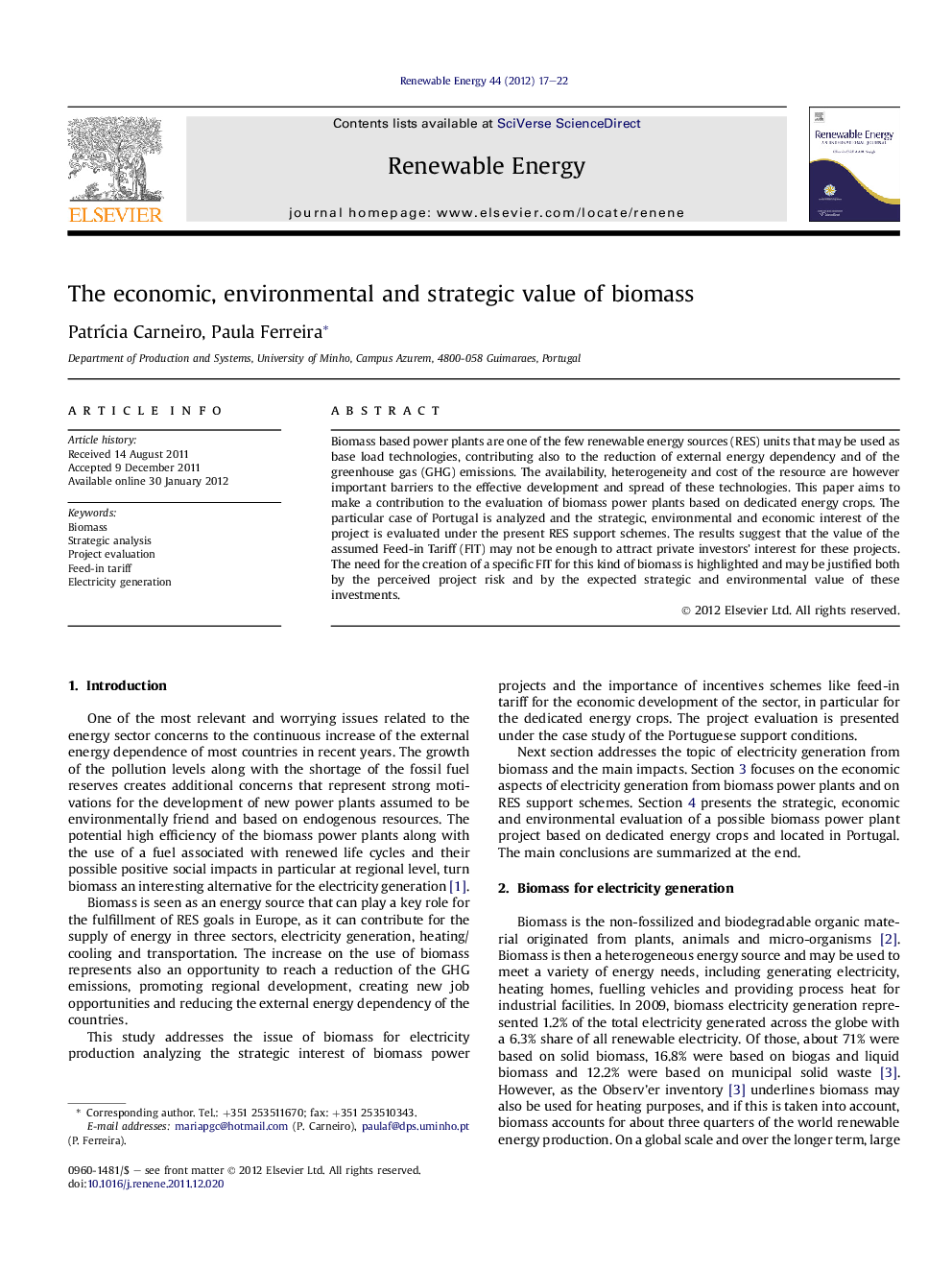| Article ID | Journal | Published Year | Pages | File Type |
|---|---|---|---|---|
| 300795 | Renewable Energy | 2012 | 6 Pages |
Biomass based power plants are one of the few renewable energy sources (RES) units that may be used as base load technologies, contributing also to the reduction of external energy dependency and of the greenhouse gas (GHG) emissions. The availability, heterogeneity and cost of the resource are however important barriers to the effective development and spread of these technologies. This paper aims to make a contribution to the evaluation of biomass power plants based on dedicated energy crops. The particular case of Portugal is analyzed and the strategic, environmental and economic interest of the project is evaluated under the present RES support schemes. The results suggest that the value of the assumed Feed-in Tariff (FIT) may not be enough to attract private investors’ interest for these projects. The need for the creation of a specific FIT for this kind of biomass is highlighted and may be justified both by the perceived project risk and by the expected strategic and environmental value of these investments.
► Environmental, electricity system and socio-economic impacts of biomass. ► Economic, strategic and environmental value of a biomass power plant in Portugal. ► Feed-in tariff analysis for dedicated energy crops. ► Perceived risk and strategic benefits may justify higher FIT for energy crops.
